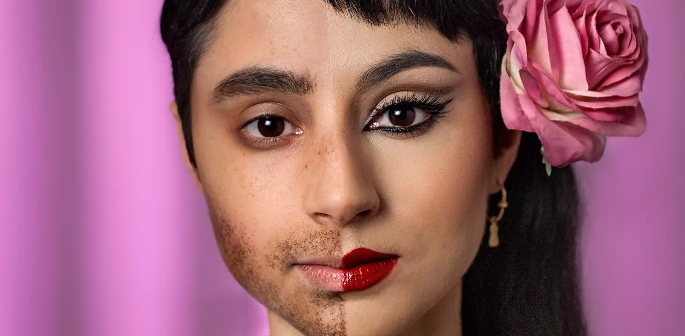"I wore boxers and sports bras so it would flatten my chest"
For the South Asian LGBTQ+ community, transitioning can be one of the most judgmental and worrying processes for a person.
Judgmental for the taboo that South Asians put upon sexual identity and worrying because of the backlash someone can face for opening up about it.
This is true for 27-year-old Shirav who shares his emotional story of transitioning to a man.
Shirav was born Shivani in a strict and structured Punjabi environment in Birmingham, UK. Trying to understand his feelings as a young child proved extremely difficult.
Mixing in the gender roles imposed on South Asian females, Shirav was conflicted between his place in the family, society and community.
He was forced into a double life but fearing for his mental state, had to come forward to his family. Misunderstood, Shirav began getting abused by his parents and had to escape.
But, he details his remarkable journey of transitioning and how he was coping in such a tense and unstable environment.
Warning: Some of the following content is of an adult, graphic and disturbing nature, and may upset readers.
Figuring it Out
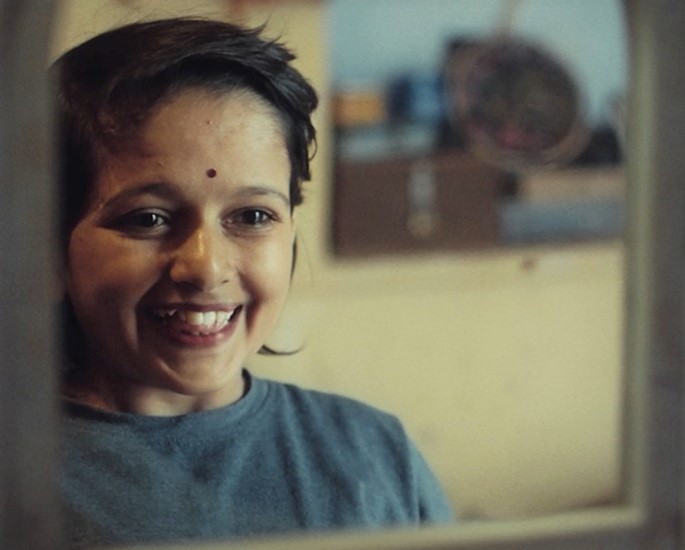
Shirav was a bright student at school and was always driven by his parents’ instructions to do well.
Although he was only seven years old, he started developing thoughts and feelings about his body.
He reveals that he was always playful with everyone at school but would be attracted to playing with more ‘boyish’ toys and always wanted to get stuck into football games.
At home, it was completely different. He was made to wear a suit, help his mum with cooking and clean up after everyone.
Whilst these traits are perfectly normal for both men and women, the dynamics of gender roles in South Asian families were different during the 90s:
“As a child, I always had this feeling I was a bit different from everyone else.
“Not in a weird way but I would notice I was into other things that ‘normal girls’ weren’t – at least at the time.
“I’d want to play sports with the other guys at school, even though they told me I wasn’t allowed.
“I’d want to have cars scattered around my bedroom or fix things with my dad. They’re all pretty normal things now but back then, I was directed towards being a girly girl.
“Wearing long dresses to school, helping my mum to cook, cleaning up after my dad and brother, having beads and stuff in my hair, it wasn’t me but I thought I’d grow into it.
“When I turned nine, I remember my uncle bought me a doll as a birthday present.
“I opened it up thinking it was going to be a Power Rangers action figure (I loved that show). It was a doll that you could dress up in different outfits and it had make-up with it.
“I remember saying to my mum after to return it because I didn’t want it.
“My mum obviously said no and opened it up in front of me, literally made me play with it and she said, ‘this is perfect for a girl’.
“A few weeks after we had a wedding and my mum picked out a suit for me. I felt so uncomfortable at the time and asked if I could wear something else.
“Then my dad came in and told me off. He told me to stop being a brat and what else would Indian girls wear.
“When I was at family functions, me and the other kids always used to play together. I remember that was the fondest time of my childhood.
“Of course we were family, but there was no judgment. We were just free to run around together, play, be cheeky and cause mischief.
“As I got older, that changed, I developed more urges as young teens do.
“Between 11 and 13, I constantly felt I was disgusting.”
“I barely looked in the mirror and would shy away in pictures. I would sometimes come out of the shower and whilst my hair was wet, recreate boys’ hairstyles.
“One time I slicked it back and pretended I was Shah Rukh Khan. I started to get bullied in school because I wasn’t into what normal girls were.
“People thought I was weird. Mix that in with being Indian, and everyone thought I was the weird Indian girl that didn’t belong there.
“But I felt the same. I didn’t belong there, not in the body I was in. I always wore my hair up to make it seem shorter and other girls would laugh at me because I looked manly.
“But every time they said that I was smiling on the inside.
“I begged my mum to let me cut my hair but she would get so angry. She said what kind of girl has short hair.
“My dad would sometimes get abusive, like slap me or push me to get into the kitchen or do work around the house.
“Any time I asked something ‘out of the ordinary’, they would become like that. I felt so lonely.
“I couldn’t turn to my brother because he was just like my dad. Me and my mum served both of them.
“I did have a couple of male friends at school. We bonded over computers and games and they accepted me but I was still putting on this fake persona.
“I knew if I said anything about my feelings my family would get angry or hit me, I didn’t even know how to describe it.
“I kept thinking ‘will I ever be okay?’”
Shirav outlines that as a young child, his need to be someone else was confirmed. Subconsciously, the process of transitioning already started.
He felt like he didn’t belong in society as he was but didn’t know what to change or do.
Even within his family, he was made to do certain things that repressed his needs even more.
With such a draining day-to-day life, Shirav wasn’t sure how he was ever gonna be accepted by himself and others.
Research & Exploration
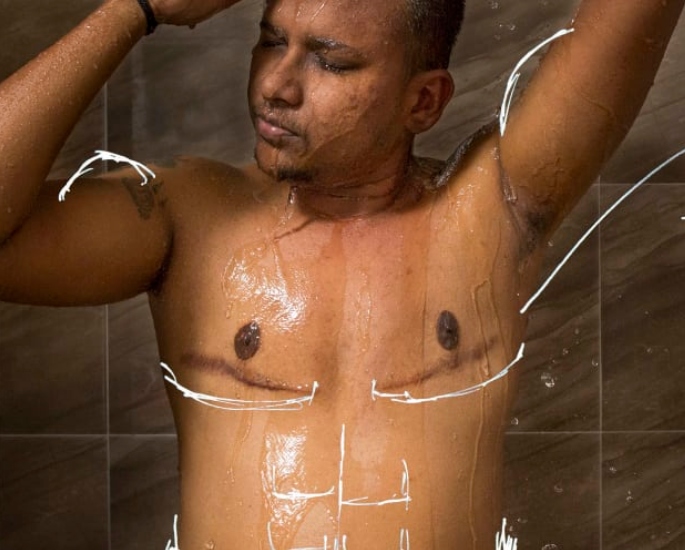
As Shirav grew older, secondary school and the experiences of it allowed him to build a thick exterior to hateful comments. He also began battling with more cultural ideas.
Along with access to the internet at school, Shirav explored transitioning as well as the transgender community more in secret.
He wanted to see others like him who were transitioning to shed a light on how to move forward with his life:
“There’s a lot of emotions you go through when transitioning. As a brown person, I didn’t even know if this was right or wrong.
“We were always taught that it’s a man and woman, then marriage, then kids and then they repeat the same cycle. That’s what I saw my whole life.
“There was no ounce of conversation around the queer community, if there was then it was most likely the elder men taking the p*ss.
“Thing is, when people in our culture talk like that, everyone, including the kids pick up on it. It’s what made me hate myself growing up.
“I knew that if I came out, the family that embraced me would now look at me with disgust.”
“Those same kids that I grew up with would most likely take the mick out of me or the community I’m a part of. That’s not right.
“I started researching more in school about transitioning, trans people and groups.
“I couldn’t do it at home because we all shared one computer and god forbid I was looking at porn, let alone something trans-related.
“But I noticed there was a whole other world out there. I read blogs with stories of other trans people and they were talking about the same emotions I felt.
“It was so helpful, especially when it came to sexual urges or relationships. I had never been in one at this point, never done anything, never kissed anyone.
“I didn’t know who to kiss or how to approach anyone, I wasn’t comfortable in myself so how would I be comfortable being intimate with another person.
“There were temptations with people around school and slowly into sixth form. In sixth form, I began packing objects down my trousers to make me feel more manly.
“I wore boxers and sports bras so it would flatten my chest more.
“I had a pair of baggy jeans that I got changed into so it would come across as more masculine. Then I’d change back into my skinny ones before I got home.
“It was kind of like temporary transitioning. Sometimes, I thought of it as my superpower.
“My mum would make waxing appointments for me, and as I got older enough to go by myself, I used to just cancel the appointments.
“I wanted my facial hair to grow. But it was hard to hide this. My mum found out the third time I did this, the woman had told her.
“She said ‘what kind of girl are you to do this?’ And in my mind, I was thinking ‘I’M NOT A GIRL’.
“I used to also wear hats so it covered how long my hair was. Then before I got home, I’d take my hair down.
“This little period gave me so much confidence and I felt like a guy, finally. But then I’d get home, have to get into a suit and do my normal chores.
“It was that time that I hated myself the most. Not just because of the clothes, but just the emphasis put on South Asian girls as a whole.
“I vowed that when I finally came out and could start transitioning, whenever that would be, I wouldn’t use my privilege as a guy to have this same demeaning outlook.”
Shirav’s secrecy led him to a strained life, having to fight against internal as well as external factors.
This is true in most South Asians who want to reveal their sexual identity or orientation.
It comes with a lot of strain and pressure as you don’t know how loved ones will react.
Reveal and Escape
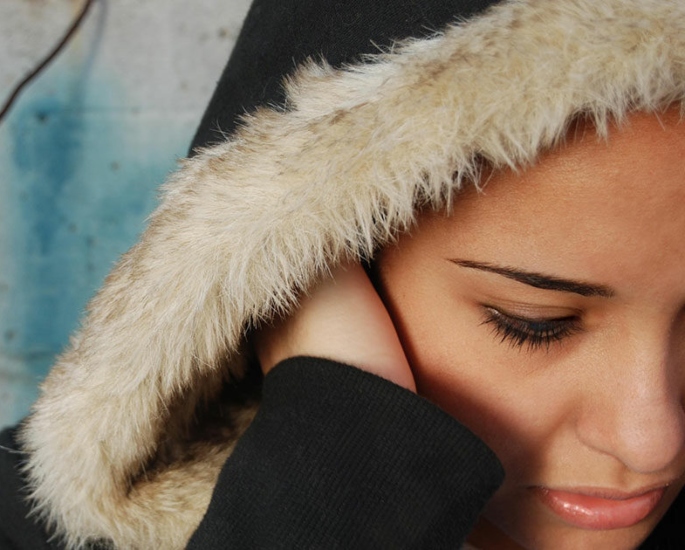
As Shirav came towards the end of his studies in sixth form, he began circulating a plan of coming out to his parents so he could start transitioning without having to hide.
He was tired of having to wear women’s clothes, tired of being referred to as Shivani and tired of feeling like he hated himself.
“Not many people know what it’s like for an Indian or South Asian person to have to go through this ordeal, except for other Asians in this situation.
“It’s so hard to put into words the number of things you have to deal with.
“People expect so much of you, they plan your life out, and if you don’t go along with that then you’re seen as the complete opposite of the person you are.
“But, I was so tired of hating my body. So tired of seeing other women in the toilets when I knew it should be men.
“Tired of going along with my family’s plan to marry me off.
“I knew I had reached the boiling point when that happened. My dad came home and I heard him speaking to my mum.
“He said he found someone for me, a respected family and their son was willing to marry young. I was so confused.
“I knew we were traditional but not typical. We were all raised in England, and I was going to get married at 18? On top of everything else, I ran to my room crying.
“I was going over stuff in my head and that was the first time I harmed myself. I used to do it sometimes but rarely. Not this bad.
“I was bleeding a lot on my thigh and had to use an old shirt to bandage it after, I didn’t want to risk my parents seeing.
“I sat on the floor crying, thinking ‘God, just take me’, I didn’t see myself living past that day, I felt so depressed and I lost all hope.
“There was this feeling in my stomach, I felt sick about who I was on the outside. Having to force myself to like or do certain things.
“I saw the blood through the shirt and then suddenly my brother came bursting in. He saw the blood and ran to my parents who took me to A&E.
“Everyone was rushing but time went so slowly. We were in the car and funnily, that’s where I told them. I just blurted everything out.
“My dad was speeding and I was talking normally, telling them how I feel, who I am, the person I have always been.
“They stayed silent. After I got stitched up, still no words. We got home, got to my room and my dad slammed the door.
“He told me to repeat what I said in the car if it’s really true. Before I finished my first sentence, he slapped me so hard, that my lip bled. My mum stood there.
“He hit me over and over telling me I should be ashamed of myself, that I’m an attention seeker.”
“He got so angry and was swearing at me in Punjabi and then said, ‘I’ll f*****g kill you if I have to’.
“I laid on the floor crying, every time he stopped, I would try to get some words out. They needed to know.
“They left the room and I overheard my mum crying and then my dad was on the phone.
“My brother tried to get into my room and then my dad started shouting at him, telling him to stop, that I’m going to go away. A few hours went by and there was silence.
“I didn’t know what was happening and then there was a knock on the door, I heard some men talking downstairs in the living room.
“I got so scared here, I thought I was going to die or be taken away somewhere. So, I packed a bag, wrote a quick note for my brother and slid it under his door.
“I crept downstairs and opened the door, as soon as I was outside, I just ran as fast as I could.
“They noticed within a minute or so and came barging out the house, by then I’d made it at the end of the road and ran across the park from our road.
“I managed to go to my friend’s house and he let me stay there.
“I guess the one good thing about strict parents is that I never told them I had guy friends so they didn’t know where I would be.
“My friend asked what happened and I told him the truth. The complete opposite reaction, him and his family embraced me. They took me in, helped me get on my feet.”
Shirav’s heartbreaking revelation led to the most painful moment of his life.
Having to deal with a horrendous ordeal from his parents and then fearing for his life are such traumatic experiences that no one should have to go through.
Luckily, he managed to escape and find a safe place to hide from the wrath of his family. Again, it ties in just the amount of backlash people from the LGBTQ+ community face.
But if it wasn’t for Shirav’s leap of faith, he wouldn’t be able to start his transitioning journey properly.
Sparking Change
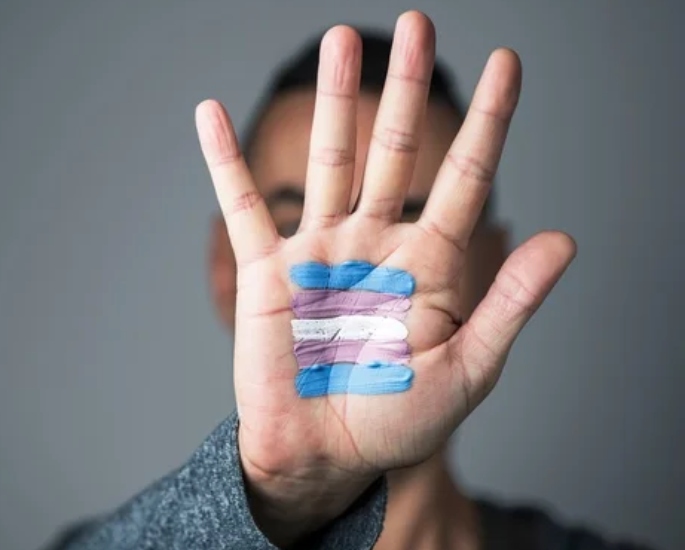
Shirav details that he has gone through the proper procedure and processes of transitioning and is now extremely comfortable in his body:
“I never got back into contact with my parents since that day. I don’t have a place for them in my heart anymore.
“I’ve undergone my surgery and also have been working with doctors at an adult clinic for hormones and testosterone. I feel so happy now.
“There was a period of my life where I felt I was in hell and wouldn’t get out.
“But weirdly, I felt like I had to go through that to be where I am now, otherwise who knows. I don’t want anyone to ever have to experience what I did.
“Hopefully, more parents can accept their children, and hopefully, more South Asians can respect everyone and anyone.
“Hopefully our culture goes back to the colourful, vibrant and inclusive place it once was.”
“Queerness isn’t new in our communities, it’s been around for centuries.
“But, we put the taboo on it. We made it unsafe for future generations. It’s time for that to stop.”
Shirav’s incredible transitioning story emphasises just how much South Asian communities need to discuss sexuality and sexual identity.
Not just so people like Shirav can come forward, but so children are well-informed and knowledgeable about these subjects.
That’s how the narrative will change, once things change within the culture.
Having endured such terrifying events, Shirav is on the path to changing the outlook of so many but states he is in a good and safe place, away from the torture he once faced on a daily basis.
He also reveals he works with a lot of pride organisations to bring to light the South Asian LGBTQ+ community.
He provides safe places for people to talk and share their feelings and stories.
Hopefully, Shirav’s story sparks a true shift in how transitioning is viewed.
Here are some useful resources if you or someone you know is struggling with transitioning or any other related issues:
- Mindline Trans + – 0300 330 5468
- Support Line – 01708 765200
- LGBT Foundation – 0345 3 30 30 30




















































